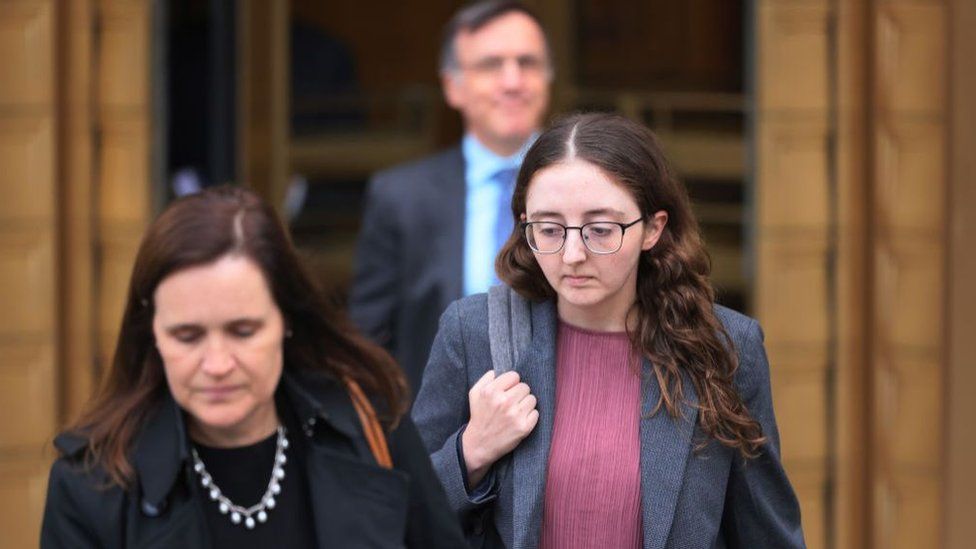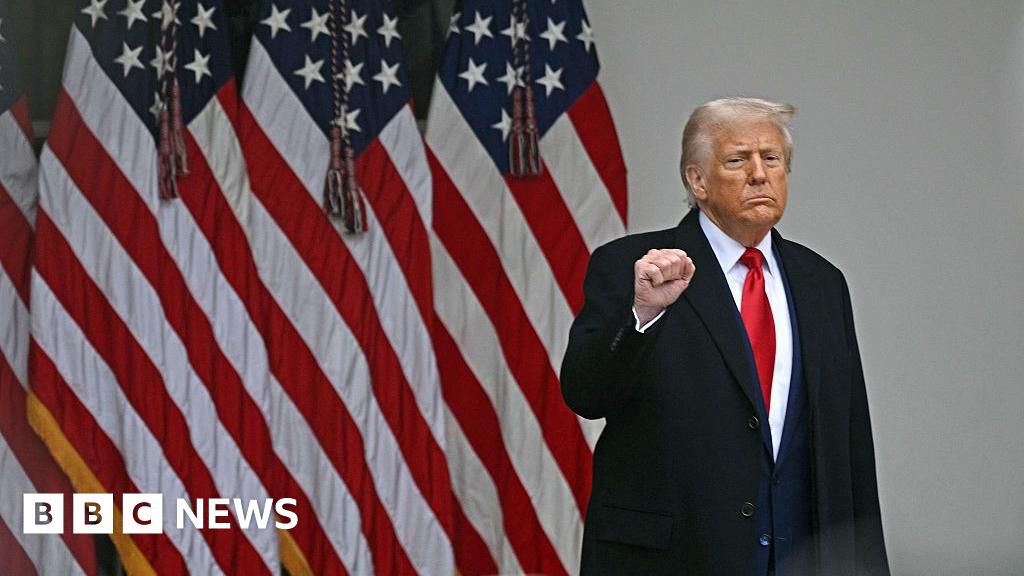ARTICLE AD BOX
 Image source, Getty Images
Image source, Getty Images
Caroline Ellison is one of the former friends testifying against Sam Bankman-Fried
By Natalie Sherman & Erin Delmore
BBC News, New York
Lawyers for former crypto billionaire Sam Bankman-Fried have asked for increased access to medicine to address his attention deficit hyperactivity disorder (ADHD) so he can better focus on his ongoing trial. As he faces a long prison sentence for defrauding investors, could he take the stand?
To many watching the proceedings, the signs increasingly point to yes.
The 31-year-old is being tried on seven federal charges including wire fraud, securities fraud and money laundering after the collapse of his cryptocurrency exchange left thousands of FTX customers short by billions of dollars. He denies all charges.
It's widely accepted that the first two weeks of trial have been close to disastrous for him.
A parade of former friends, staff and business colleagues have testified that Mr Bankman-Fried took money from FTX for his own purposes, while his team has struggled to undermine their story.
"It clearly appears because of how poorly this case is going for him... that he views taking the stand as necessary if he hopes to win an acquittal," said Jacob Frenkel, a former federal prosecutor and partner at Dickinson Wright who has been following the trial.
On Monday, it was the turn of Nishad Singh, a childhood friend of Mr Bankman-Fried's brother, who said he had complained repeatedly about Mr Bankman-Fried's lavish spending on investments, marketing and sports sponsorships and felt the company, intended to be a force for good, ultimately became "evil".
Mr Bankman-Fried's lawyers have drawn admissions from customers that they did not read the terms of service and established that his friends often failed to voice objections at the time. They've said Twitter posts were taken out of context.
But the team is wrestling with some of the decisions made by Judge Lewis Kaplan in the lead-up to the trial, which limited their avenues of defence.
Those rulings included restrictions on what witnesses could appear and to what extent Mr Bankman-Fried's lawyers could introduce evidence that investors and customers were negligent.
Image source, Getty Images
Image caption,Gary Wang is one of the friends of Bankman-Fried testifying in court
Allowing Mr Bankman-Fried - whose powers of persuasion once moved billions of dollars to his side - to speak for himself may be among the best options left.
Typically attorneys advise against their clients taking the stand, worried about potential damage inflicted by prosecutors' questions or whatever impression jurors might take away independently.
But there are instances when defendants do take the stand, notably Elizabeth Holmes, a once celebrated tech tycoon now serving time in prison for fraud and conspiracy.
Government prosecutors have said they are on track to wrap up their portion of the trial by 27 October, when Mr Bankman-Fried's team presents its side of the case.
David I Miller, a partner at Greenberg Traurig and a former assistant US attorney in the Southern District of New York, said putting Mr Bankman-Fried on the stand was a "very risky proposition" - especially given his many public comments on the case.
"There's a real opportunity for the government to attack the defendant's credibility and to undermine any intent-related defence that's being argued on his behalf," he said.
The defence only needs to plant doubt in the minds of the jury, a 12-person cast, with six back-up alternates. The group includes a high school librarian, a commuter rail conductor, a paediatric nurse and a retired investment banker.
Image source, Reuters
Image caption,Courtroom sketch of Sam Bankman-Fried
Given Mr Bankman-Fried's repeated willingness to speak to the press - even after he was charged - and his stomach for gambling when the payoff is big, many expect him to take his chances.
That speculation increased after his lawyers raised the possibility in a letter on Sunday requesting that he receive increased access to Adderall for his attention deficit disorder.
"As we approach the defense (sic) case and the critical decision of whether Mr. Bankman-Fried will testify, the defense has a growing concern that because of Mr. Bankman-Fried's lack of access to Adderall he has not been able to concentrate at the level he ordinarily would and that he will not be able to meaningfully participate in the presentation of the defense case," lawyers Mark Cohen and Christian Everdell wrote.
Judge Kaplan on Monday showed little sympathy, refusing to delay trial to address the issue.
What Mr Bankman-Fried makes of it all remains hard to know. He has spent most of his hours in court shielded by a laptop, which was granted to him, without internet access, for note-taking.
While his lawyers can advise him about what to do, the decision will ultimately rest with him.
With decades in prison a possibility, this may be his biggest personal bet yet.

 1 year ago
34
1 year ago
34








 English (US) ·
English (US) ·